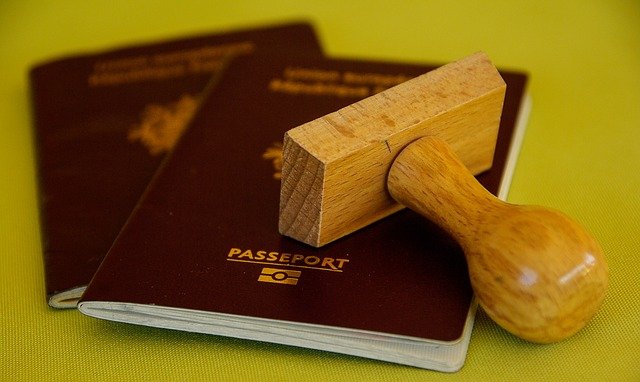Humanitarian Protection: What if You Don’t Qualify for Refugee Status?
by Javaria Ahmed
Farah is originally from a visa national country. She came to the UK as a student but now fears that she cannot go back home because of the fighting and conflict that is happening there. The rebels in the area have taken over. Everyone Farah knew in her area has fled the country. Farah is very upset about what the war is doing to her country. She does not have any political opinions and has never been politically active. Farah says she cannot go back home to her country of origin. She is afraid that she will be killed or injured very badly in this conflict. Farah was told she would not qualify for refugee status. Can she stay in the UK?
Humanitarian Protection
What happens if you do not qualify as a refugee but still need protection? If you need protection but do not meet the requirements for refugee status, you may qualify for humanitarian protection. Anyone claiming any international protection is an asylum seeker. So whether the Home Office grants you humanitarian protection or refugee status, you would still be an asylum seeker. The procedure for making humanitarian protection claims is, therefore, the same procedure as claiming asylum.

Humanitarian Protection: The Requirements
In the UK
You have to be in the United Kingdom or have arrived at a port of entry in the UK. The port of entry is where you can lawfully enter the UK and is usually an airport or a seaport.
Not a Refugee
You do not meet the refugee requirements.
Significant Risk of Suffering Serious Harm
You need to prove that you will face a significant risk of suffering serious harm if you return to your country. This risk is so substantial that you are not willing to get protection from your country.
In other words, you need to prove that you will face a significant risk of suffering serious harm. Serious harm includes the following:
- The death penalty or execution
- Unlawful killing
- Torture, degrading or inhumane treatment or punishment in your country
- The international or internal armed conflict which, from such violence results in a significant threat to your life.
Not Excluded
You have not been excluded from getting humanitarian protection.
This may happen when a person committed:
- a war crime, crime against peace or crime against humanity
- a serious crime that is not political outside of the UK (before entering the UK)
- acts that go against the principles and purpose of the United Nations.
What is the Difference between Humanitarian Protection and Refugee Status?
The key difference between humanitarian protection and refugee status is that for humanitarian protection you do not have to show that you have a well-founded fear of being persecuted due to either: Race, Religion, Nationality, being a member of a particular social group or your political opinion. Instead, for humanitarian protection, you just have to prove that you will suffer serious harm, as explained above.
If you are fleeing war and need protection, use humanitarian protection. You will not be granted refugee status if you are fleeing war unless you are being persecuted for either: race, religion, nationality, being a member of a particular social group or having a certain political opinion.
So, Can Farah Get Humanitarian Protection?
Yes, Farah can stay in the UK by claiming humanitarian protection because:
- Farah is in the UK.
- Farah’s refugee application will not be successful. She would not qualify as a refugee as she does not have a well-founded fear of being persecuted due to either her: Race, Religion, Nationality, being a member of a particular social group or having a political opinion. Farah was not politically active. She does not have any political opinion which she would be persecuted for. She would just be caught up in the conflict as everyone else in her country would be.
- If Farah returned, she would face a significant risk of suffering serious harm due to the conflict happening.
- Farah has not been excluded from getting humanitarian protection.
Can You Apply for a Travel Document?

Another main difference is that you can apply for a Refugee Convention Travel document if you are a refugee. If granted humanitarian protection, you will not be given a travel document. You have to apply to your country’s authorities for a passport. If national authorities refuse to issue a passport and do so in writing, you can apply to the Home Office for a Certificate of Travel. You can also apply for a Certificate of Travel if applying for a new passport will put you at risk of serious harm from your country’s government.
For an adult, this Certificate of Travel is £280. For a child (15 or under), the fee is £141. You should be aware that some countries do not accept this certificate as a valid travel document. Therefore, you should check with the country’s authorities that you wish to visit before you plan to travel there. Currently, countries that do not accept this type of travel document are: Austria, Belgium, Denmark, France, Germany, Greece, Iceland, Italy, Luxembourg, the Netherlands, Portugal, South Africa, Spain and Switzerland.
What are the similarities between Humanitarian Protection and Refugee Status?
For both types of protection, the serious harm has to amount to persecution. People who carry out the harm can be your country’s state (government) or other individuals. As with refugee status, the Home Office will also look at whether you can relocate within your country of origin.
How will the Home Office Assess your Humanitarian Protection application?
According to the rules, the Home Office should give you a ‘benefit of the doubt’ when assessing your claim. They’ll do this if you have followed the correct procedure and have claimed asylum at the earliest possible stage.
The Home Office will look at whether you have given a consistent account of events in your interview and statements. They will also look at whether you have provided details of your case and whether you attended all the interviews. There is a low standard of proof. This means that you will not be expected to provide evidence in the form of documents. In other words, they should accept that what you tell them is true.
The Home Office will also do their own research regarding the situation in your country. They will see if their research matches your account of events.
After You Get Humanitarian Protection
If you are granted humanitarian protection, you can stay in the UK for 5 years. The Secretary of State will give you a document – a ‘UK Residence Permit’. It will be valid for 5 years. After these 5 years, you can apply for settled status (Indefinite leave to remain).
With humanitarian protection leave to remain you will have access to the NHS, welfare benefits and housing. Also, you can work. In addition, you can apply for your ‘pre-flight’ partner (spouse or civil partner, unmarried or same-sex partner) or child (under 18)) to come and join you in the UK. ‘Pre-flight partner’ means that you formed your relationship with the partner before you applied for humanitarian protection.
If your humanitarian protection is not successful – you can appeal against this decision.
To conclude, if you need protection but do not qualify as a refugee, you may be able to claim Humanitarian Protection.
About the Author of this Article

Javaria Ahmed is a talented law graduate and has completed the LPC. She is an aspiring immigration solicitor particularly keen to work with asylum seekers and refugees.
Javaria wishes to help create a change in how refugees and asylum seekers are viewed whilst helping them access the justice, support, and protection they rightfully deserve.
Javaria is extremely passionate about creating a more fair and just immigration system, thus helping some of the most vulnerable people in our society.
